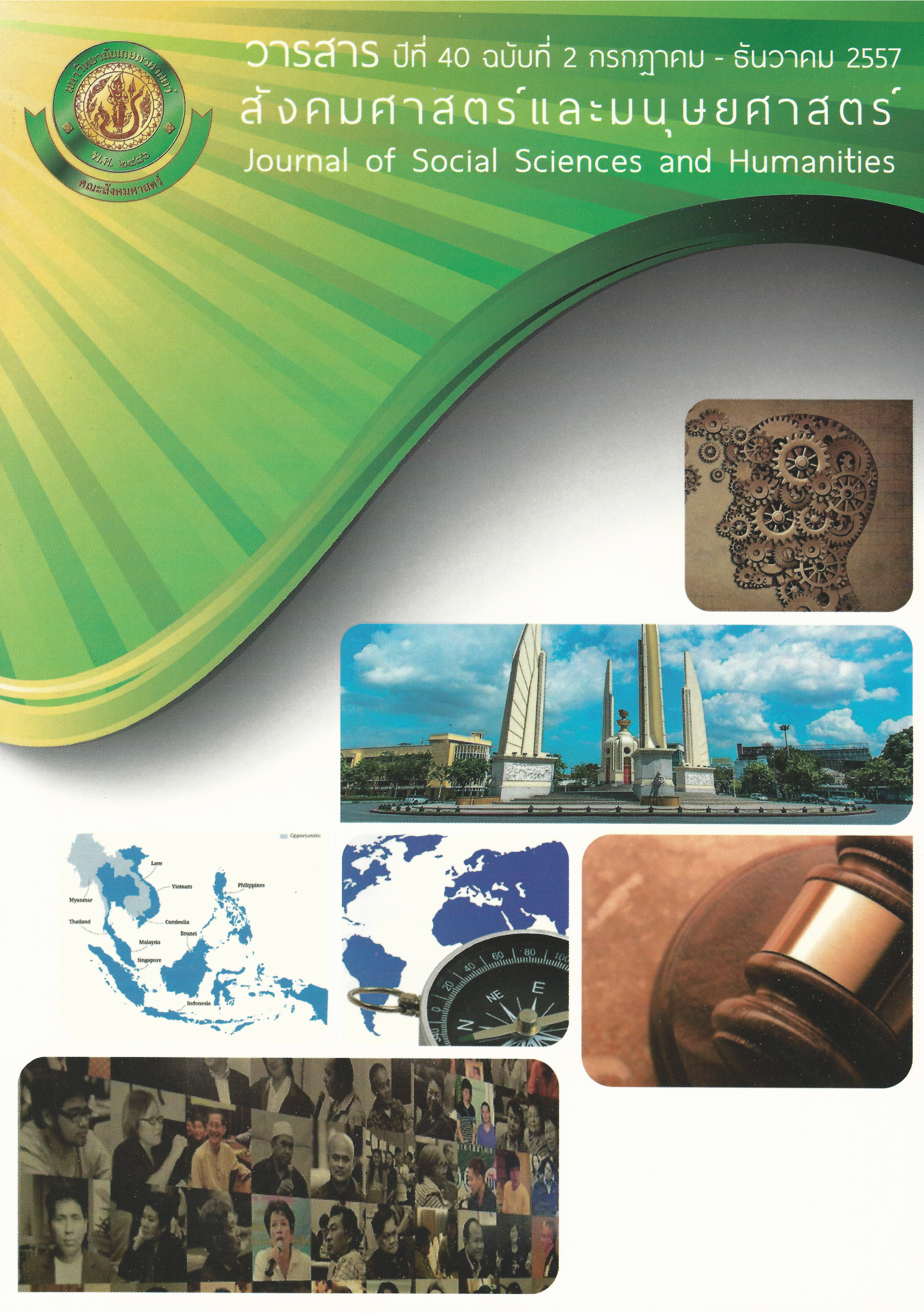การสร้างคุณค่าในตนเองผ่านสื่อสังคมออนไลน์เฟซบุ๊คของนิสิตนักศึกษาในกรุงเทพมหานคร
Main Article Content
บทคัดย่อ
งานวิจัยเรื่องนี้มีวัตถุประสงค์ เพื่อศึกษาการสร้างคุณค่าในตนเองผ่านสื่อสังคมออนไลน์ เพื่อเปรียบเทียบการประเมินคุณค่าในตนเองระหว่างสังคมออนไลน์และชีวิตจริง และเพื่อให้ข้อเสนอแนะต่อการสร้างคุณค่าในตนเองผ่านสังคมออนไลน์ งานวิจัยชิ้นนี้ใช้แบบสอบถามเป็นเครื่องมือในการเก็บข้อมูล ประชากรเป้าหมาย คือ นิสิตนักศึกษาที่เรียนมหาวิทยาลัยในเขตกรุงเทพมหานคร จำนวน 402 หน่วย
ผลการวิจัย พบว่า กลุ่มตัวอย่างมีแนวทางการสร้างคุณค่าในตนเองผ่านเฟซบุ๊คโดยให้ความสำคัญกับการแสดงออกผ่านลักษณะกายภาพมากที่สุด (ค่าเฉลี่ย 3.10) รองลงมาคือ การแสดงออกผ่านภาวะทางอารมณ์และปฏิสัมพันธ์ระหว่างบุคคล (ค่าเฉลี่ย 2.93) การแสดงออกผ่านทางค่านิยมในสังคม (ค่าเฉลี่ย 2.77) และการแสดงออกผ่านทางความสามารถทั่วไป สมรรถภาพ และผลงาน (ค่าเฉลี่ย 2.71) ตามลำดับ
เมื่อเปรียบเทียบคะแนนรวมแบบประเมินคุณค่าในตนเองระหว่างสังคมในชีวิตจริงกับสังคมออนไลน์แล้ว พบว่า มีความแตกต่างกันอย่างมีนัยสำคัญทางสถิติที่ระดับ .05 โดยกลุ่มตัวอย่างมีการเห็นคุณค่าในตนเองผ่านทางชีวิตจริงมากกว่าสังคมออนไลน์ที่ค่าเฉลี่ย 3.56 และ 3.43 ตามลำดับ
Building self-esteem of undergraduate students in Bangkok through facebook online social network
The purposes of the research were to study the way undergraduate students used social media platform to boost their self-esteem, to compare assessment of the way undergraduate students build their self-esteem between using online social platform and using real-life experiences, and to recommend the positive attitudes about self-esteem through online social network. Questionnaires were used as a data collection tool. The main population data were 402 college students in Bangkok.
The results indicated that the sample group tended to build self-esteem via accessing Facebook, mostly by physical expressions (mean 3.10), followed by emotional expressions and personal interaction (mean 2.93), social value expressions (mean 2.77), and by normal capability, efficiency and accomplishment expressions (mean 2.71), respectively.
By comparing the total scores from the self-esteem assessment method between online and offline social groups, significant statistical difference was found at the 0.05 level. The offline social sample group felt more self-esteem than the online ones with the mean of 3.56 and 3.43, respectively.

